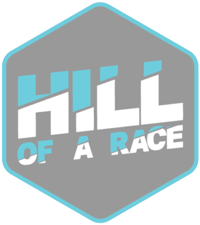Please note this is not a flat even surfaced racecourse. The ski hill trails will likely be covered with snow, are very demanding at times and have numerous hazards so you must pay special attention to what you are doing and where you are going. It is up to you to ensure your own health and safety before, during and after the race.
In the event you cannot continue running while on the course stop and ask a passing runner to notify a volunteer at the start/finish and wait for assistance.
Each runner is encouraged to consult with his or her own personal care physician regarding any physical or medical limitations they may have before entering the race and to let the race directors know of the limitation(s) prior to the race. It is important for each entrant to recognize the potential physical and mental stresses which may evolve from participating in this race. Adequate training prior to the race is highly recommended.
Be careful and responsible and, do not exceed your own abilities and limitations. If you have to be evacuated from the event you will assume the sole responsibility for paying all associated financial costs.
We are not providing medical advice but merely informing you of some of the risks you may face as a result of participating in this event:
- Over-hydration:
- Over-hydration (aka Hyponatremia) is a condition that occurs when the level of sodium in your blood is abnormally low. Sodium is an electrolyte, and it helps regulate the amount of water that’s in and around your cells.
- In hyponatremia, one or more factors — ranging from an underlying medical condition to drinking too much water during endurance sports — causes the sodium in your body to become diluted. When this happens, your body’s water levels rise, and your cells begin to swell. This swelling can cause many health problems, from mild to life-threatening.
- It is possible that hyponatremia may worsen after a race, as unabsorbed fluid in the stomach can be rapidly absorbed once you stop exercising. Signs and symptoms of hyponatremia may include bloating, nausea, vomiting, headache, confusion, incoordination, dizziness and fatigue. If left untreated, hyponatremia may progress to seizures, pulmonary and cerebral edema, coma and death.
- De-hydration/Heat Stroke:
- It is important to ensure you are consuming the proper amount of fluids in order to prevent dehydration. Some signs of dehydration are extreme thirst, less frequent urination, dark coloured urine, fatigue, dizziness and confusion. Some signs of heat stroke are nausea, vomiting, headache, dizziness, faintness, irritability, lassitude, confusion, weakness, and rapid heart rate. De-hydration and heat stroke may progress from minimal symptoms to complete collapse in a very short period of time.
- Sprains/Fractures:
- Sprains and fractures can occur on our rough trails so be careful where you plant your feet.
- Falling on Slippery/Unstable Ground:
- Conditions will vary from soft and slushy to rock-hard and slippery so wear shoes with good grips.
- Hypothermia:
- Hypothermia can strike very quickly, particularly when there is a drop in core body temperature due to extraneous circumstances, when your pace slows down or from injury. The initial warning signs of hypothermia often include lethargy, disorientation and confusion. You will feel very cold with uncontrolled shivering and may become confused and be unaware of the surroundings. Stay well-nourished, adequately hydrated and properly clothed.
- You need to pay attention to your body temperature during the entire race and in particular when making the river crossing(s) as the water is cold.
- Wildlife Hazards:
- Deer, moose, coyotes, bears, mountain lions have all be seen in the area; some more regularly than others. Stay alert!
- Renal Shutdown:
- Appropriate training is key to prevention, and adequate hydration is key to both prevention and treatment. Masking an injury during the race by using anti-inflammatories such as ibuprofen has been shown to be a factor in renal failure. Some physicians and medical journals warn against the use of Ibuprofen (Advil, Motrin) or Naprosyn when used under stressful conditions as they can lead to kidney problems.
- Being Tired:
- You will likely become fatigued at some point in the race. Fatigue, combined with the effects of dehydration, hypothermia, hyperthermia, hyponatremia, hypoglycemia, sleep deprivation and other debilitating conditions can produce disorientation and irrationality.








